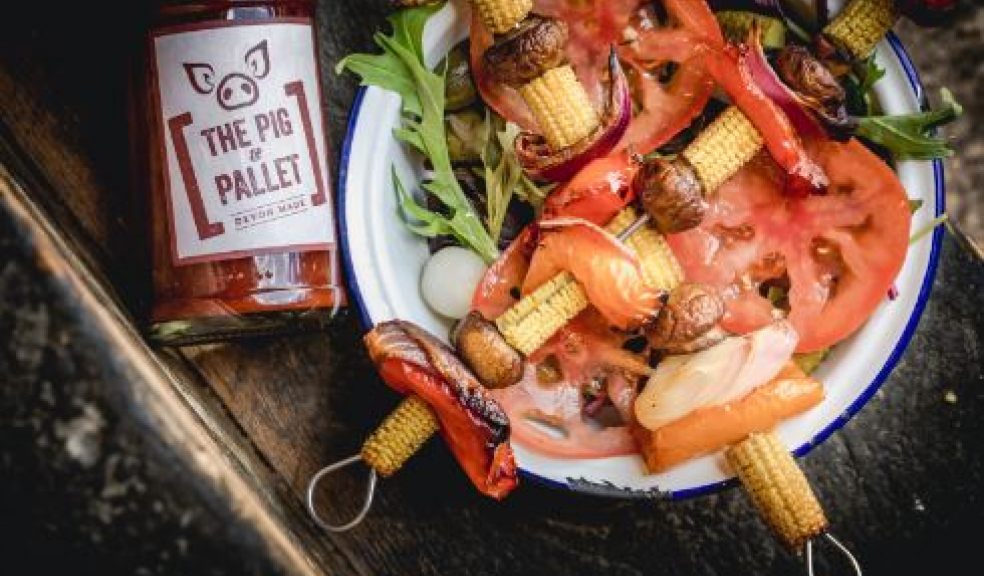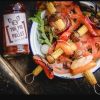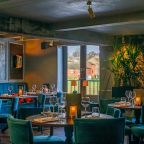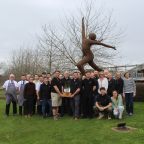
Devon Meat Company and Barbecue Restaurant Promotes Eating Less Meat
Devon-based barbecue restaurant have launched a vegan menu in response to customers’ increasingly health-conscious food choices. The team, who also own an organic charcuterie company, are keen to promote meat-alternatives in a bid to encourage less but better-quality meat consumption.
Topsham’s Pig & Pallet smokehouse and barbecue restaurant uses the same wood and smoking techniques to replicate meaty flavours, but instead of using animal products, they showcase vegetables and jackfruit.
Co-owner Steve Williams believes that there needs to be a significant change to consumer habits to shift our struggling meat industry, “Consumer demand for cheap meat has driven the meat industry to over-industrialise the process. Mass-producing meat in huge farms, with hormone-injected cattle being force-fed grain couldn’t be further from natural or sustainable.
“I’m not suggesting we should all become vegan. As omnivores, I think we should take a flexible approach by adopting a plant-based diet supplemented with good quality meat. We should consume meat responsibly with respect to the animal, being mindful of the process that has put it on the plate.
“For example, pork ribs are one of the most popular lines on the Pig & Pallet menu, and we have limited supply from our own hand-raised pigs. Therefore, we teamed up with a cracking West Country bacon producing company who have surplus ribs as a by-product of their process. Procuring ribs from them balances the carcass and ensures every part of the animal goes to good use.”
The Pig & Pallet’s sister organic charcuterie company is founded on traditional Southern Italian principles of using the whole of the animal in the most flavoursome way.
Good Game, who are one of the first manufacturers in the UK to avoid nitrates in their cured meat and charcuterie production, use every scrap of the animal, be it venison, pork, beef or rabbit. They even produce a flavoursome Calabrian spicy meat paste called nduja, which is 80% pork fat.
When it comes to meat purchasing, Co-owner Pete Woodham-Kay says, ‘Our animals have been hand-reared by us, shot or caught locally, or bought from local producers. We buy predominantly from Darts Farm in Topsham, whose extensive fields customers will pass on their way to our restaurant. They raise Devon breeds of cattle, which are grass-fed and dry-aged. It’s a sustainable process and we believe delivers the best flavour too.“What’s more, our money circulates in the local economy for longer, and it’s great that the Darts brothers, as well as Ali and Phil David the butchers are all frequent customers of ours. We all support each other.”
In addition to those seeking a flexitarian diet, the Vegan Society has grown four-fold in the past ten years to approx. 550,000 members.
Steve Williams says, “We’ve always had vegetarian dishes on the menu, but our vegan menu demonstrates what you can do when you take animals out of the equation altogether. We’ve also made our BBQ sauce vegan by replacing beer with cider.
Frozen supermarket giant Iceland reveals that their vegan burger range outsold their wagyu beef burgers with vegetable-based food up by 10% over the past 12 months.
Meanwhile, AmazonFresh have reported vegan barbecue ingredients to be among the top-ordered products over the past 12 months. They predict that meat-free barbecue will achieve mainstream popularity with British consumers this summer.













